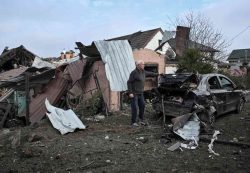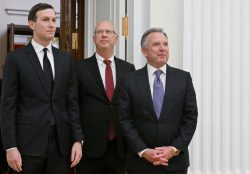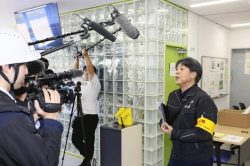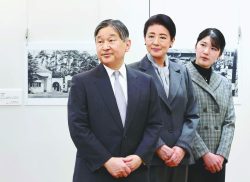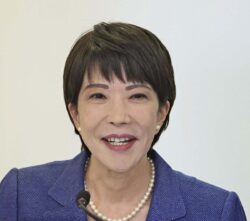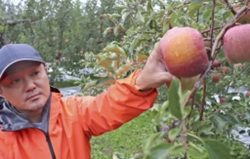South Korea Warns Young Doctors may have Licenses Suspended If They’re Not Back at Work by Thursday
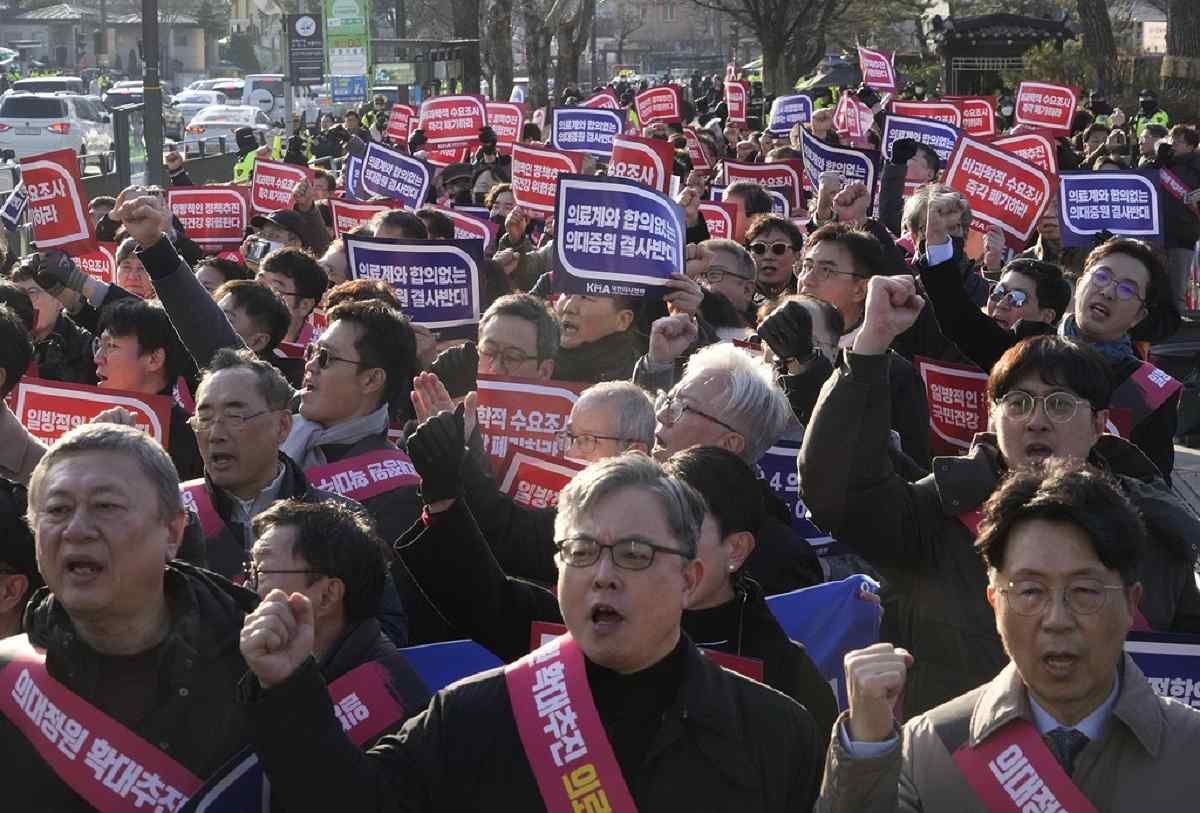
Doctors stage a rally against the government’s medical policy near the presidential office in Seoul, South Korea, Sunday, Feb. 25, 2024.
17:11 JST, February 26, 2024
SEOUL, South Korea (AP) — South Korea’s government gave young doctors on strike four days to report back to work, saying Monday that they won’t be punished if they return by the deadline but could be indicted or have their medical licenses suspended if they don’t.
About 9,000 medical interns and residents have stayed off the job since early last week to protest a government plan to increase medical school admissions by about 65%. The walkouts have severely hurt the operations of their hospitals, with numerous cancellations of surgeries and other treatments.
Government officials say adding more doctors is necessary to deal with South Korea’s rapidly aging population. The country’s current doctor-to-patient ratio is among the lowest in the developed world.
The strikers say universities can’t handle so many new students and argue the plan would not resolve a chronic shortage of doctors in some key but low-paying areas like pediatrics and emergency departments.
Vice Health Minister Park Min-soo said during a televised briefing Monday that the government won’t seek any disciplinary action against striking doctors if they return to work by Thursday.
“We want them to return to work by the end of this month, Feb. 29. If they return to the hospitals they had left by then, we won’t hold them responsible” for any damages caused by their walkouts, Park said. “It’s not too late. Please, return to patients immediately.”
But he said those who don’t meet the deadline will be punished with a minimum three-month suspension of their medical licenses and face further legal steps such as investigations and possible indictments.
Under South Korea’s medical law, the government can issue back-to-work orders to doctors and other medical personnel when it sees grave risks to public health. Refusing to abide by such an order can bring suspensions of their licenses and up to three years in prison or 30 million won ($22,480) in fines. Those who receive prison sentences would be stripped of their medical licenses.
There are about 13,000 medical interns and residents in South Korea, most of them working and training at 100 hospitals. They typically assist senior doctors during surgeries and deal with inpatients. They represent about 30% to 40% of total doctors at some major hospitals.
The Korea Medical Association, which represents about 140,000 doctors in South Korea, has said it supports the striking doctors, but hasn’t determined whether to join the trainee doctors’ walkouts. Senior doctors have held a series of rallies voicing opposition to the government’s plan in recent days.
Earlier this month, the government announced universities would admit 2,000 more medical students starting next year, from the current 3,058. The government says it aims to add up to 10,000 doctors by 2035.
Striking doctors have said they worry doctors faced with increased competition would engage in overtreatment, burdening public medical expenses.
A public survey showed that about 80% of South Koreans back the plan. Critics suspect doctors, one of the best-paid professions in South Korea, oppose the recruitment plan because they worry they would face greater competition and lower incomes.
Park said the country’s medical service for emergency and critical patients remain stable, with public medical facilities extending their working hours and military hospitals opening emergency rooms to ordinary patients. But local media reported that an octogenarian suffering a cardiac arrest was declared dead last Friday after seven hospitals turned her away citing a lack of medical staff or other reasons likely related to the walkouts.
Hwang Byung-tae, a 55-year-old laryngeal cancer patient, said he has regularly visited a Seoul hospital for treatment for four years. Last week, he said he had to leave the hospital without receiving an anti-cancer injection because of the walkouts.
Hwang accused both the government and doctors of holding the lives of patients hostage. “It’s patients like me who end up suffering and dying, not them,” Hwang said.
"News Services" POPULAR ARTICLE
-

American Playwright Jeremy O. Harris Arrested in Japan on Alleged Drug Smuggling
-

Japan’s Nikkei Stock Average as JGB Yields, Yen Rise on Rate-Hike Bets
-

Japan’s Nikkei Stock Average Licks Wounds after Selloff Sparked by BOJ Hike Bets (UPDATE 1)
-

Japan’s Nikkei Stock Average Buoyed by Stable Yen; SoftBank’s Slide Caps Gains (UPDATE 1)
-

Japanese Bond Yields Zoom, Stocks Slide as Rate Hike Looms
JN ACCESS RANKING
-

Tokyo Economic Security Forum to Hold Inaugural Meeting Amid Tense Global Environment
-

Keidanren Chairman Yoshinobu Tsutsui Visits Kashiwazaki-Kariwa Nuclear Power Plant; Inspects New Emergency Safety System
-

Imports of Rare Earths from China Facing Delays, May Be Caused by Deterioration of Japan-China Relations
-

University of Tokyo Professor Discusses Japanese Economic Security in Interview Ahead of Forum
-

Japan Pulls out of Vietnam Nuclear Project, Complicating Hanoi’s Power Plans




